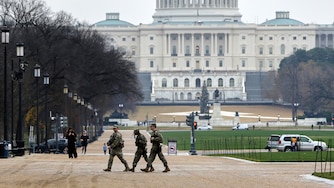If you’re reading this, there’s a chance you’re a bootstrapper, founder, girlboss, disruptor, hustler or go-getter. Or maybe you’re just trying to survive.
New research shows that a quarter of residents in Baltimore and Baltimore County describe themselves as entrepreneurs. But that doesn’t mean we’re living in the land of opportunity.
The Johns Hopkins 21st Century Cities Initiative surveyed more than 800 residents of Baltimore and 500 residents of Baltimore County and found stark differences in how people viewed entrepreneurship, based on factors like age, race, income and education.
More than one-third of Black residents described themselves as entrepreneurs, compared to one-fifth of white residents. Younger residents with lower incomes and less education also were more likely to call themselves entrepreneurs.
Compared to a similar nationwide survey, Black residents were more likely to call themselves entrepreneurs than Black people across the country. Meanwhile, the opposite was true for white Baltimoreans.
The survey report breaks down entrepreneurs into two categories: People who are “pulled” into entrepreneurship because of exciting opportunities, and people who are “pushed” into entrepreneurship because of a lack of other options.
The report found that some Baltimoreans, especially Black residents with less education and income, are likely being pushed into “necessity entrepreneurship.” That finding came into focus when surveyors asked people how they perceive entrepreneurship opportunities in Baltimore and Baltimore County.
Poorer residents — those making less than $70,000 — were more likely to hold pessimistic views. Wealthier residents — those making more than $70,000 — were more likely to hold optimistic views.
Yet it’s often poorer residents who turn to entrepreneurship for a living, while wealthier residents rely on traditional employment.
The survey results suggest that entrepreneurship in Baltimore is more about survival than opportunity, the report said, and that entrepreneurs might be striving against workplace discrimination and a lack of job opportunities.
“In the absence of livable wage job opportunities, people turn to entrepreneurship out of necessity to make some income, but oftentimes income from entrepreneurship is more uncertain than what is available from a good job at an established business,” the report said.
The report concluded by recommending that foundations, regional banks and government officials find new ways to support these entrepreneurs and finance their businesses.
Baltimore, like other Rust Belt cities, was once a magnet for middle-class workers in industries like manufacturing. But many of those jobs no longer exist.
Instead, Baltimore has grown increasingly reliant on its anchor institutions, meaning employers like the University of Maryland Medical System and the Johns Hopkins University.
That’s according to economists at the Federal Reserve Bank of Philadelphia who developed a “reliance index” to track how different regions depend on their hospitals and universities. Of metropolitan areas with more than 2 million residents, Baltimore had one of the highest reliance scores in the country.
In recent years, the city of Baltimore has tried different approaches to bolster entrepreneurs. The BOOST program from the Downtown Partnership of Baltimore recently awarded $100,000 to five Black-owned businesses. Last week, Mayor Brandon Scott announced grants of up to $200,000 for downtown restaurants.
Meanwhile, other entrepreneurs seeking traditional business loans are looking outside of banks, where credit scores and capital requirements disqualify many would-be business owners. Instead, they’re turning to crowdfunding platforms like Crowd Fund Baltimore.




Comments
Welcome to The Banner's subscriber-only commenting community. Please review our community guidelines.